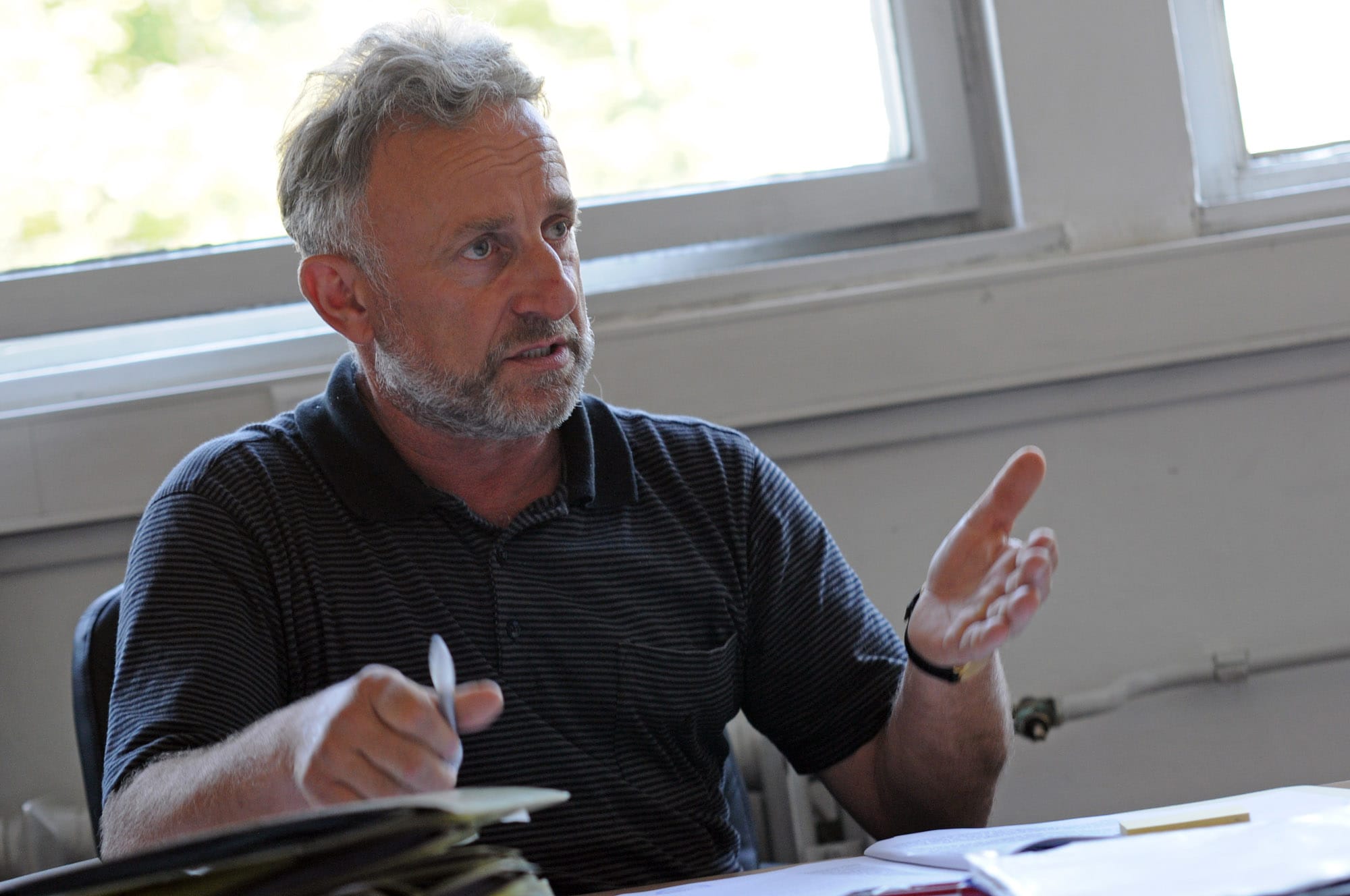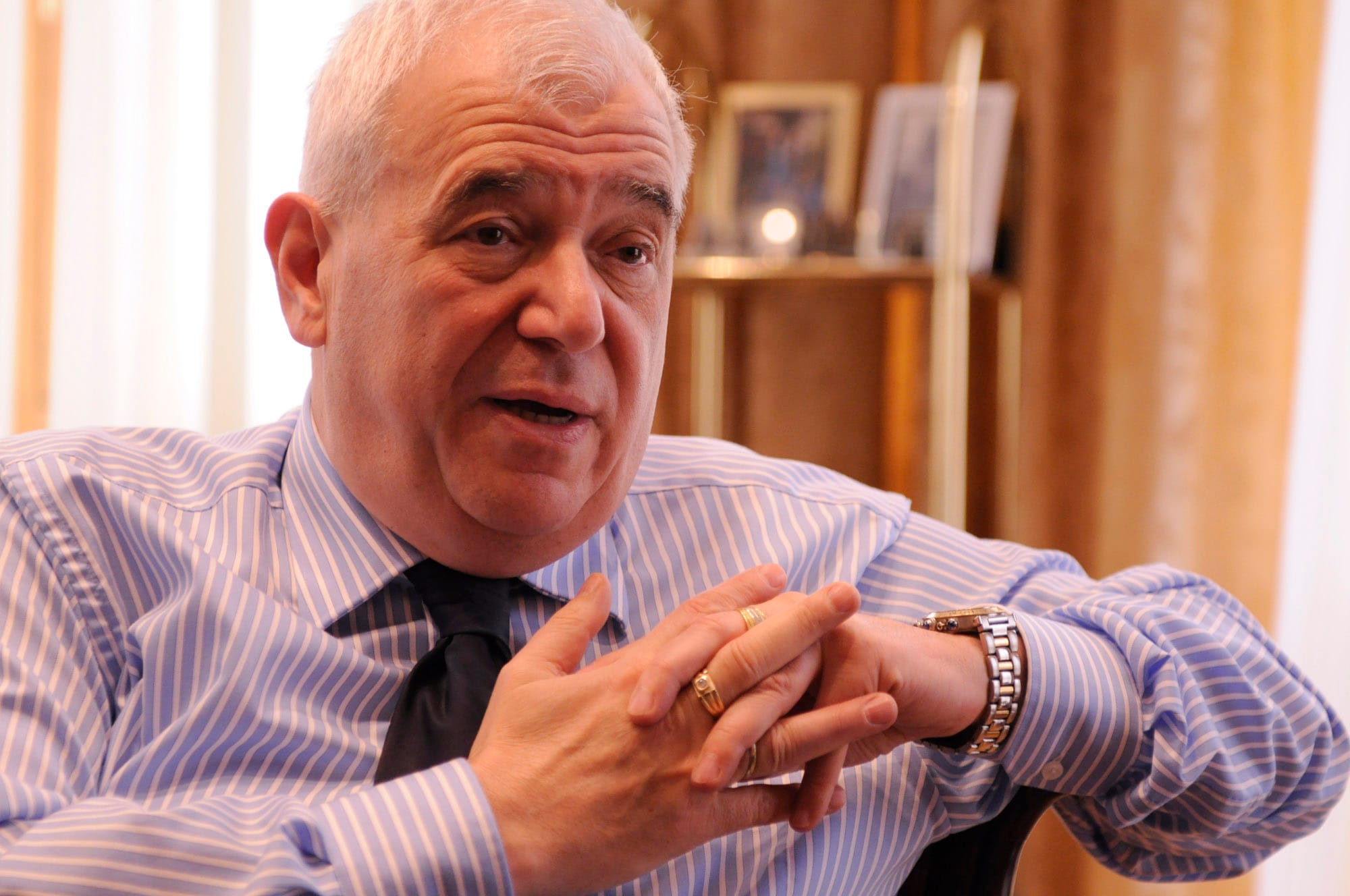When entity authorities in Banja Luka announced a showdown with Big Crime five years ago, their new weapon was to be the Special Prosecutor’s Office of the Republika Srpska (RS). Then RS Prime Minister Milorad Dodik said that the new office would strengthen judicial capacity to combat the most serious crime.
An analysis by the Center for Investigative Reporting in Sarajevo (CIN) found instead that indictments against officials largely have been dropped or when suspects are found guilty, they are given at most minimum sentences. Verdicts frequently point out that charges are too vaguely described or that evidence has not been well analyzed. One verdict criticized the prosecutor’s office for failing to show defense lawyers exculpatory information, which is a basic legal requirement.

Photo by CIN
The Special Prosecutor’s Office was set up to prosecute organized crime and large financial frauds. It is made up of seven prosecutors and a chief special prosecutor. According to RS Justice Minister Džerad Selman, the best police investigators are at its disposal. Its cases are prosecuted before the Banja Luka District Court and before the RS Supreme Court following on appeal.
In all 59 persons have been prosecuted for financial crimes so far, out of which 39 were sentenced to short terms that altogether add up to 25 years. Six were given parole. Fourteen were acquitted.
Although the Prosecutor’s Office is supposed to be prosecuting crimes which receive a sentence of at least five years, two thirds of the defendants received sentences of between three and six months long, while the harshest sentence meted out was two years.

Želimir Lepir, president of the Special Department for Organized Crime and Major Financial Crimes, said that prosecutors at first charged defendants with more serious crimes, then during trial had to amend the indictment which is why the small sentences are passed.
Meanwhile, in organized crime cases, 67 persons have been convicted mostly for drug trade and armed robberies and sentenced to a total of 290 years of prison. Almost half of the accused received a prison sentence of five or more years. The longest sentence meted out was 27 years.
Expected a Superman, Looked up to Eliot Ness
Some former and current legislators of the RS National Assembly who voted five years ago in favor of setting up the Prosecutor’s Office say now that it has not fulfilled its mission.
Nikola Baštinac, a legislator from the governing Alliance of Independent Social Democrats, said, “I hope that they’ll work more and better in the coming period.” He praised the law setting up the office but criticized its performance to date.
When she spoke out in April 2006 during Parliamentary discussion about setting up the Prosecutor’s Office, she said that she imagined the special prosecutor as “a superman with a mask – an extremely brave man.”
Today she says that she expected them to run cases similarly to the Serbian Special Prosecutor‘s Office which, following the assassination of former Prime Minister Zoran Đinđić, rolled out the action Saber that led to the arrests and sentencing of the bosses of major criminal clans.
‘They did nothing’ said Jakovljević about the RS Prosecutor’s Office.
An MP of the Social-Democratic Party Slobodan Popović, said the Special Prosecutor’s Office brought to mind the “Untouchables” team of Eliot,Ness – a special prosecutor who fought organized crime gangs in the US in the 1930s. Today he says that those who doubted that the RS Special Prosecutor’s Office would serve in the fight against crime have proved right.
‘They were set-up just to make one big presentation as if something was going on, while, in fact, nothing has been going on’ said Popović.
The Special Prosecutor’s Office took as under its jurisdiction a case involving a 2,000 KM bribe even though a Penal Code stipulates for such offenses a prison sentence ranging from one to five years. The indictment charged Desimir Komljenović, an inspector with the RS Bureau for Inspection Affairs, with taking a bribe from the director of Novi Grad-based Unametal Komljenović.

He pleaded guilty and was sentenced to 18 months in prison. However, his lawyer Miroslav Mikeš said that this was not a real case for The RS Special Prosecutor’s Office so much as a good and easy advertisement.
“The prosecutor’s office has a right to choose a case and decide on its jurisdiction,” explained Lepir.
Mikeš said that the prosecutor’s office fared worse in cases of financial crimes because the defendants were all either acquitted or given nominal sentences. Another lawyer from Banja Luka – Miljkan Pucar who got two women acquitted in a case the office brought, said that the prosecutor’s office started the proceedings despite a lack of evidence.

Photo by CIN
In contrast, Justice Minister Selman said that the project called the Special Prosecutor’s Office has succeeded though it is too early to grade it.
Miodrag Bajić, the RS Chief Special Prosecutor, did not respond to repeated calls for an interview with CIN reporters.

Photo by CIN
His superior, the Chief RS Prosecutor Amor Bukić, said that he was overall pleased with the work of the Special Prosecutor’s Office, but he acknowledged criticism about some defendants being smeared in public as criminals and Mafiosi and then being released.
Inarticulate Evidence
The Special Prosecutor’s Office has so far brought indictments in five major corruption cases, and two ended in acquittals. In two other cases convictions resulted in sentences ranging from three months to two years. The fifth case is currently underway.
A case against the Department of Privatization was publicized as one of the biggest corruption cases the Prosecutor’s Office took on. It began in June 2007 with the spectacular arrest of officials and employees in front of TV crews – but ended last April with the RS Supreme Court acquitting the director Goran Škrbić and eight of his colleagues. They were charged with fixing auctions during the sale of 66 state companies between 2002 and 2003 so that favored buyers got firms for far less than their worth.
In its verdict, the District Court of RS –– among other things stated that the Special Prosecutor’s Office not only failed to prove the charges but “omitted the evidence (…) that would be favorable to the defendants,” a violation of a rule about all sides in a legal proceeding being treated equally.
Taxpayers have paid for errors blamed on the special prosecutors. Defense lawyers earned 215,.000 KM in fees paid from the Court’s budget.
Indictments against Vladislav Babić, former manager of Banja Luka-based Boska retail store and Boris Gašpar, former RS minister of tourism and trade and his assistant Braco Vrančic, ended up much the same way.
The Banja Luka District Court acquitted them last November of charges stemming from the illegal sale of Boska’s premises. The Special Prosecutor’s Office appealed to the RS Supreme Court which has not yet given its final word on it.
The Prosecutor’s Office submitted an indictment in the RS Railways case in June 2008 against 12 persons and it too resulted in acquittals. The District court of Banja Luka sentenced all of the defendants to a total of six years and four months of prison.
Sreten Telebak, the former CEO, was sentenced to one year and 10 months – pending a judgment on appeal – for selling 89 undervalued freight coaches to a company Panon-vagon from Subotica, Serbia. Cvijan Filipović, a member of the Commission of the RS Railways that checked the coaches received a year and one month in prison, while another eight colleagues received between three and 10 months. One person received a suspended sentence.
The District court of Banja Luka handed out similar sentences in the case of the Brod Oil Refinery. Ilija Drpa, former director of the refinery and Milan Bogićević, former minister of industry, energy and development in the RS Government were sentenced to two years and 18 months respectively in March 2011 on charges of concluding damaging contracts with the Swiss Vitol company.
The RS Supreme Court is reviewing the Railways and Refinery cases.
The District Court is currently dealing with the case of Medicinska Elektronika against Mile Radišića, the owner of Grand Trade, a Banja Luka firm; Željko Kataline, a former acting director of Medicinska Elektronik;Dragan Cerovac, a former manager of the Securities Department of the RS Investment and Development Bank (IRB) RS and the president of the Supervisory Board of the Medicinska Elektroinika; and Nikica Bajić, a former member of the Board of Directors of Medicinska Elektronika. The Special Prosecutor’s Office’s indictment charges that they manipulated the price of 3.5 million KM worth of shares thus damaging the RS property for nearly 1.8 million KM.
Radišić acquired 35 percent of the shares from the IRB RS’s managed Shareholder Fund and Restitution Fund.
The biggest challenge for the Prosecutor’s Office may be yet to come. The BiH Prosecutor’s Office referred to it last June part of the criminal case against Dodik, six former RS, as many senior officials and heads of government agencies and Slobodan and Slavica Stanković, the owner and the director of Laktaši-based Integral company. According to a February 2009 report from the State Investigation and Protection Agency (SIPA), they were all charged with organized crime, abuse of office, money laundering and tax evasion. Among other things SIPA found that the law has been violated during construction of the administrative seat of the RS Government and the building of the RS Broadcasting Corporation in Banja Luka, and during work on parts of the highway from Gradiška to Banja Luka, all together damaging the RS budget for around 115 million KM.
The Prosecutor’s Office is analyzing the paperwork after which it will decide on further steps.
The citizens know very little about the Prosecutor’s Office, and those who do know about its work are overall dissatisfied, according to a survey of 500 people nationwide conducted by the Prism Research and commissioned by CIN last March.
The poll showed that almost the double number of respondents from the RS holds a view that the BiH Prosecutor’s Office is more effective than the RS Special Prosecutor’s Office in combating Corruption and Organized Crime.







